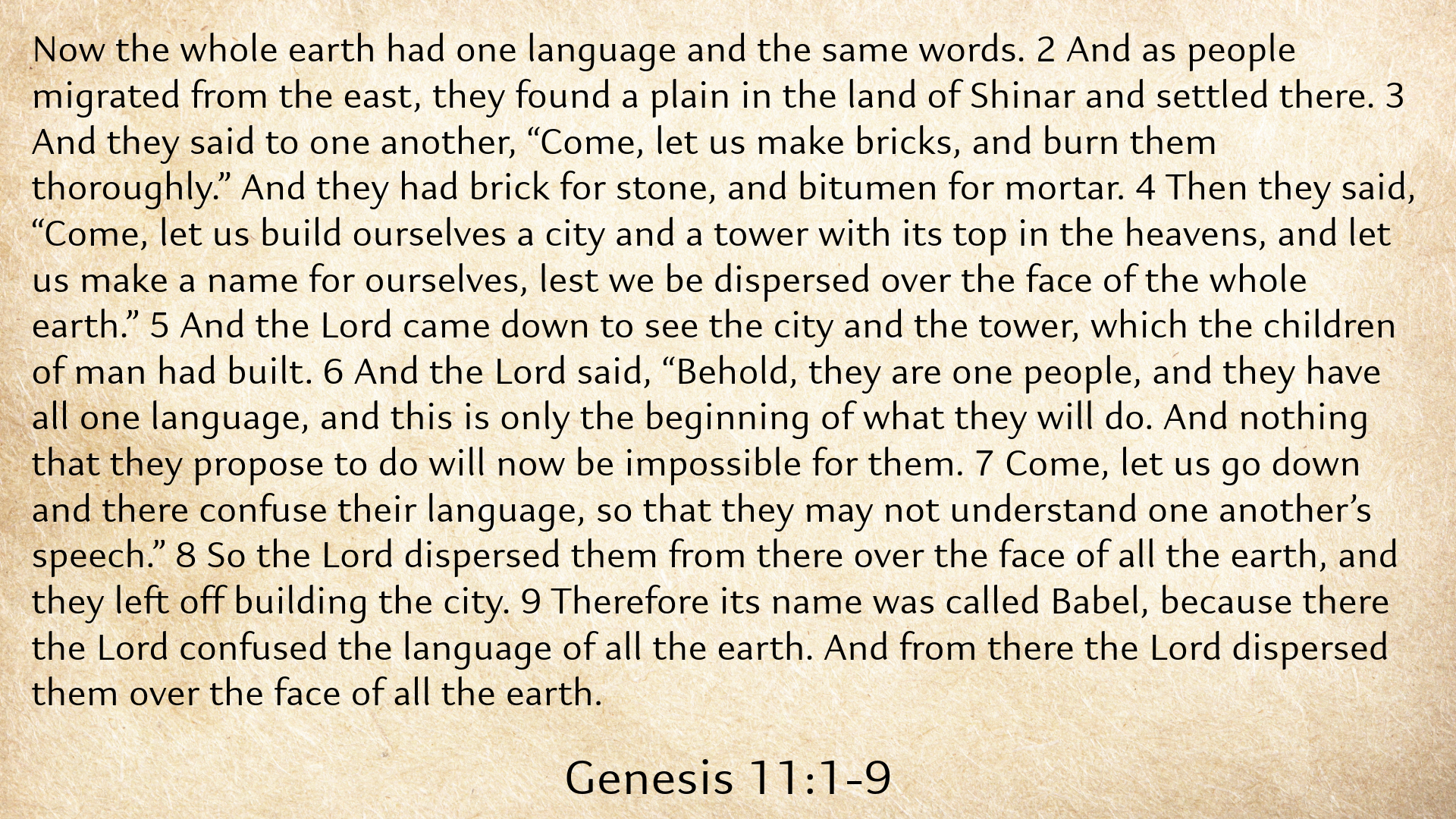Last month, we explored Ecclesiastes and how, in a broken world, our work can feel meaningless. This month, we're turning to the opening chapters of Genesis and the book of Esther to uncover another challenge: work can become selfish.
This builds on the previous discussion of how work often feels fruitless—not just because of a broken world, but because our hearts naturally drift toward making work (and it's rewards) central to our identity. When we shift our focus inward, working primarily for ourselves, we step outside of God's intended design for work. [A design we looked at more closely earlier this year – see January-April's blogs.]
Rather than serving others or contributing to the good of society, we went up using work to elevate ourselves, seeking to prove our worth or stand out from those around us. In this month's blog, we'll explore two biblical examples where this kind of self-centered work surfaces—and reflect on both the consequences and a better way forward.
Making a name for ourselves
In Genesis 1-2, work begins as a joyful stewardship of creation—just as God designed it. But by Genesis 3, sin ruins everything. The following chapters show work being redirected from worship to self-glory. Genesis 4 introduces technology as a path to power. Then, in Genesis 11, we encounter the Tower of Babel.

The problem at Babel isn't the tower itself, it's the motive behind it. In verse 4, we read:
Then they said, "Come, let us build ourselves a city and a tower with its top in the heavens, and let us make a name for ourselves, lest we be dispersed over the face of the whole earth."
The desire here is strikingly modern: maximize control, elevate our name, secure our future. It's the temptation to find our identity in what we build, achieve, or control, instead of in God.
Two motives stand out in the Babel story:
- "A tower with its top in the heavens"
- They are assigning spiritual significance to their achievements. This is materialism disguised in ambition. Ultimately, this places our hope in human effort instead of God.
- Desire to not be "dispersed over the face of the whole earth"
- They seek safety and stability apart from God, anchoring their security in structures and cities rather than in God.
In the end, God disrupts their plans. Not because He's against creativity or ambition, but because sin has consequences. Prideful independence always leads to disconnection. Glory and relationship (our deepest desires) only thrive with God, not apart from Him.
The "Palace"
Now let's jump to another Old Testament figure: Esther. Her story is filled with themes of power, vocation, and self-interest. While people in full-time ministry are sometimes seen as more "used" by God, Esther reminds us that God works powerfully through all vocations—law, government, business, the arts, medicine, and more.
Esther, a Jewish woman placed in a royal position, faces an impossible choice. She can hide her identity to protect herself—or risk everything to speak up for her people.
For if you keep silent at this time, relief and deliverance will rise for the Jews from another place, but you and your father's house will perish. And who knows whether you have not come to the kingdom for such a time as this? - Esther 4:14
Esther's "palace"—her status, comfort, and safety—wasn't just a blessing. It was a test. Would she use her position to preserve herself or to serve others?
What about us?
We face the same palace dilemmas today. Will we use our careers to serve ourselves or to serve others?

It's natural to root our identity in our jobs. But when your status becomes something you must protect as all costs, it begins to own you.
Would you be offended if someone suggested your success was the result of grace?
Common responses include:
"You don't know how hard I worked to get into that school."
"You don't know what I went through in that internship."
"You don't know how much I sacrificed to get here."
That may be true. But who gave you your abilities and your opportunities? God did!
Make the change
In Esther 1-2, we meet a queen who hides her identity to keep the peace. But by chapter 4, everything shifts:
Go, gather all the Jews to be found in Susa, and hold a fast on my behalf, and do not eat or drink for three days, night or day. I and my young women will also fast as you do. Then I will go to the king, though it is against the law, and if I perish, I perish. - Esther 4:16
She choose courage. She embraces risk. She uses her role to save lives, not just preserve her own. In the end, God delivers His people. And Haman, the one who sought their destruction, is defeated. Esther's influence was not wasted—but it was surrendered first to God.
God created us, sustains us, and gave us everything we have. We owe Him everything.
But even more stunning: He gave everything for us.
Because of what Jesus did on the cross, we know we are loved—not because of what we do, but because of who He is. That should radically change our relationship with work. Suddenly, the things that once defined us become tools, not trophies. If we lose them, we still have Christ.
We no longer need to make a name for ourselves because God has already given us one. That frees us to serve others and honor Him in our work.




